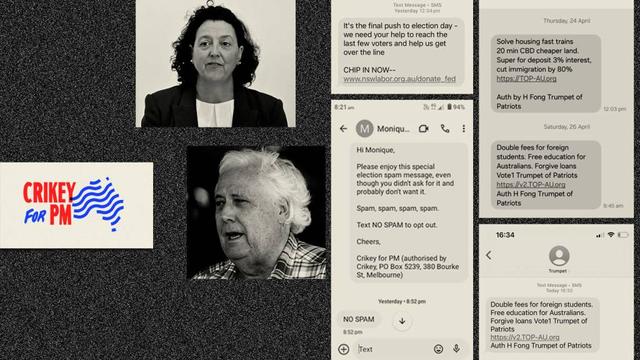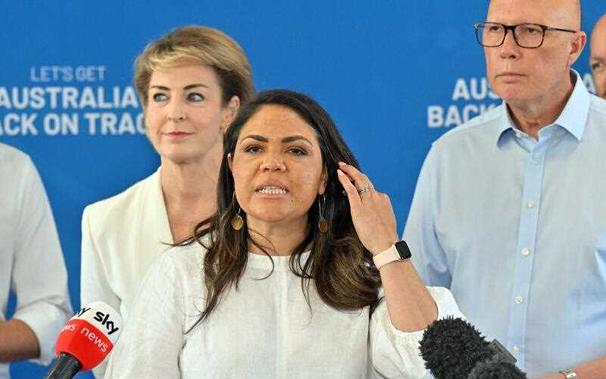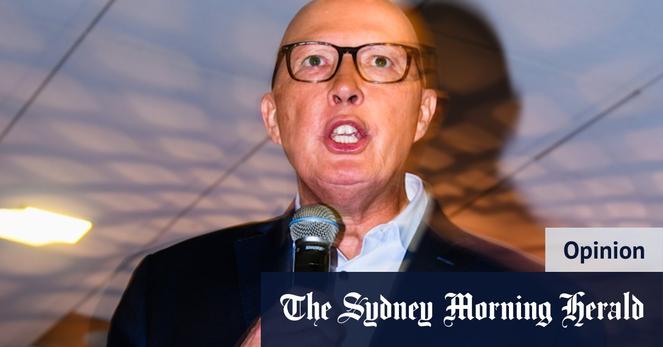https://michaelwest.com.au/the-maga-threat-is-australias-democracy-safe-from-trump-style-assaults/
Note; for anyone who actually can access it, i commend the article itself, as it has many links & graphs for extra clarity
QUOTE BEGINS
Peter Dutton likes to appear strong, DOGE-style, Jacinta Price vows to ‘make Australia great again’, Clive Palmer spends millions on his ‘Trumpet of Patriots’ campaign. Is our democracy safe, Amanda Lotz asks?
Democracies must constantly work to maintain their health, so yes, all of what is occurring globally can also happen here. But there are four fundamental differences between Australian and US media use and political structure that serve Australia well:
- The US does not have a well-resourced and established public broadcaster.
- There is much more fragmentation of US media because of the high adoption of cable.
- Voting in the US is not compulsory.
- US voting districts are still being organised — in other words, gerrymandered — in ways that provide partisan advantage.
The US funds its public broadcasters at an extraordinarily low level, and they instead rely heavily on private donations.
Perhaps as a result, US public broadcasting is not as widely used and doesn’t have the widespread trust enjoyed by the ABC and SBS. Having a widely shared and trusted news source helped Australia weather the COVID-19 pandemic while the US devolved into small-minded debates over the ‘right’ to not wear masks.
Distrust has been weaponised by US commercial media to create significant differences in the news sources trusted, generally splitting between Republicans and Democrats. As a result, there are fundamentally different understandings of reality across party lines in ways that impair democratic function.
The strong trust and regard for Australia’s public service media is not guaranteed. Both the ABC and SBS arguably need expanded expectations and funding, because the collapse of commercial broadcasters and newspaper businesses has diminished the role of these other institutions in Australian life.
Percentage of Australians who trust or distrust the news produced by different news brands. [see graph in article]
The scale of the US adoption of cable, which was in half of homes by the late 1980s and paid for by nearly 90% of homes in the early 2000s, has shaped US media much more than in Australia. We lacked access to cable until the late 1990s, and only 30% ever paid for the service.
As a result, the US experienced a more fragmented media sphere much earlier.
In particular, it allowed a hyper-partisan opinion channel — Fox News, which operates similarly to Sky News Australia — to have a major role setting the conversation about elections and determining what ‘issues’ remain in the public eye.
Media researchers who have studied propaganda since World War II say that the power of media is
The danger of partisan talk channels isn’t simply in misinformation, but in overwhelming audiences in coverage of relatively unimportant things while failing to offer deeply contextualised information about truly consequential issues. For example, Fox News has stoked US fears of rising crime levels despite evidence that crime remains low relative to historic norms. It also tied that crime to migration.
Viewers who hear that story repeatedly come to believe crime is an important issue and migrants the source, despite the lack of evidence.
As many commercial news producers will say, “If it bleeds, it leads”, because commercial news outlets’ primary aim is to attract attention to sell to advertisers, not inform or benefit society. And politicians making outlandish claims, even if false, attract the attention that commercial news seeks.
In addition to Fox News, many local US broadcast stations are now owned by companies reproducing its partisan strategy.
One of these companies, Newsmax, just bought seven television stations in Australia, and some Australians can access Sky News as a free-to-air service.
Australians would benefit from the broadcast regulator, the Australian Communications and Media Authority, enforcing policy and protecting them from any challenge to democracy.
In 2021, YouTube took action against Sky News for spreading misinformation about COVID, while the authority failed to act.
A lot of attention has focused on social media messaging in recent elections, but the ability of television outlets such as Fox News that still reach millions to start conversations that are amplified through social media are an important part of social media’s influence.
Reasserting long-held standards for Australia’s broadcast license holders that have gone under-enforced in recent decades is an easy step to diminish the amplification.
Two key differences in the US and Australian political systems are Australia’s use of compulsory voting and the ability in the US to organise voting districts in ways that provide partisan advantage.
Only about half of eligible voters cast ballots in recent US presidential elections, which have been incredibly close. The US system consequently plays on issues that will motivate more to vote, often stoking unfounded fears or creating panics.
The practice of gerrymandering, illustrated well by this article, has also eroded the sense of free and fair elections, as those in power have redrawn voting districts to ensure they remain in office.
Australians should regard any effort to eliminate compulsory voting as most concerning and prevent policy changes that alter how electorates are established. Often, the first threats seem small, and those in power often set rules that advantage them.
Many have pointed to parallels in messaging strategies in US and Australian politics and identified the use of US consultants in Australia.
In Australia, non-commercial news sources have debunked efforts to create panic around issues that drive emotions. Compulsory voting ensures vote totals reflect the population, not a segment of the population that has been especially motivated to vote.
Changes in the US in recent years shouldn’t be regarded as by chance, but part of a long strategic effort to compromise its democratic institutions with significant focus on creating distrust of media institutions.
- Originally published under Creative Commons by 360info™.
- Amanda D. Lotz is a leader of the Transforming Media Industries and Cultures research program in the Digital Media Research Centre at Queensland University of Technology. She is the author, co-author or editor of 14 books.
QUOTE ENDS
#AusPol #ClimateCrisis #WomensRights #ShitParty1 #ShitParty2 #FsckOffDutton #WhyIsLabor #NoNukes #VoteGreens #ProgIndies #OzElection2025 #IncludeAdam







